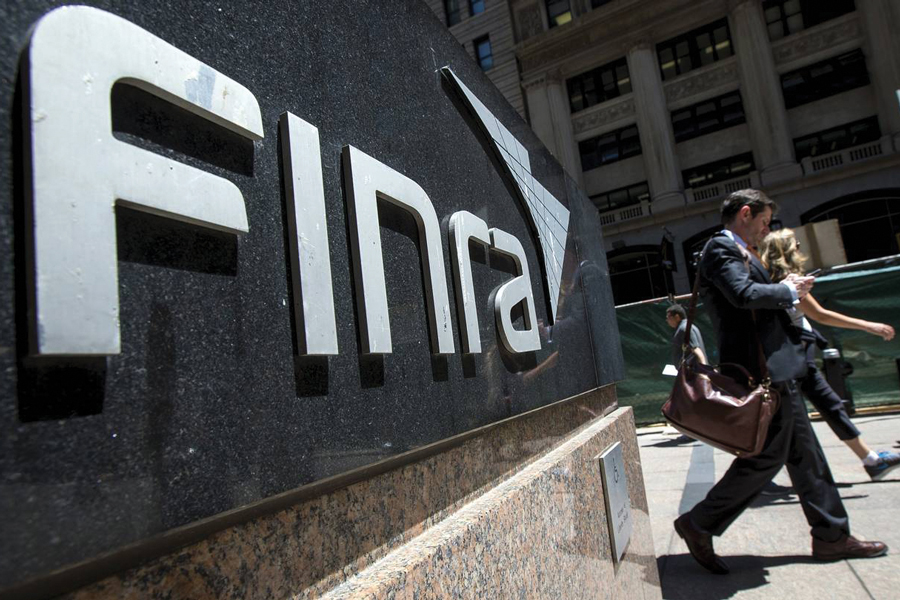

Finra is starting the New Year with more latitude to rein in rogue brokerages.
A new Financial Industry Regulatory Authority Inc. rule went into effect Jan. 1 that enables the broker-dealer self-regulator to impose additional capital obligations and other conditions on brokerages that employ a high number of registered reps with significant disciplinary histories.
Under the rule, Finra can require a “restricted firm” to deposit cash or qualified securities in segregated, restricted accounts that are controlled by Finra. The money could be used to fund arbitration awards and for other purposes.
“Finra believes that the direct financial impact of a restricted deposit is likely to change such member firms’ behavior—and therefore protect investors,” Finra said in a regulatory notice.
The rule was approved last summer by the Securities and Exchange Commission.
Finra will make an annual determination of which brokerages pose heightened investor-protection risks. The criteria includes the number of firm-level and individual-level regulatory disclosures.
“The multi-step process includes numerous features designed to narrowly focus the new obligations on the firms most of concern,” the regulatory notice states.
Finra has been under pressure for years to crack down on firms that hire a high number of brokers who have violated the self-regulator’s rules. In April 2018, it issued guidance on heightened supervision.
The new rule will help Finra identify potential problem brokerages before they harm investors, said Marlon Paz, a partner at Latham & Watkins.
“It is not just addressing misbehavior in the capital markets through enforcement, but it’s addressing misbehavior through prevention,” said Paz, a former counsel in the SEC’s Division of Trading and Markets. Finra “is not just continuing to play whack-a-mole. It’s about smart investor protection.”
The rule allows a firm to avoid the “restricted” category by voluntarily reducing its workforce, explaining why it doesn’t deserve the designation or proposing an alternative punishment.
It’s not clear how many firms will be designated as restricted. As the rule was being developed, Finra indicated the number likely would be small.
But Paz is concerned that small firms will make up most of the restricted roster and said that the amount of time to work with Finra “to get out of the penalty box” may not be sufficient for firms with limited resources.
“I hope Finra remains vigilant that the onus [of the new rule] is not borne by smaller firms that continue to struggle to compete,” Paz said.

Rajesh Markan earlier this year pleaded guilty to one count of criminal fraud related to his sale of fake investments to 10 clients totaling $2.9 million.

From building trust to steering through emotions and responding to client challenges, new advisors need human skills to shape the future of the advice industry.

"The outcome is correct, but it's disappointing that FINRA had ample opportunity to investigate the merits of clients' allegations in these claims, including the testimony in the three investor arbitrations with hearings," Jeff Erez, a plaintiff's attorney representing a large portion of the Stifel clients, said.

Chair also praised the passage of stablecoin legislation this week.

Maridea Wealth Management's deal in Chicago, Illinois is its first after securing a strategic investment in April.
Orion's Tom Wilson on delivering coordinated, high-touch service in a world where returns alone no longer set you apart.
Barely a decade old, registered index-linked annuities have quickly surged in popularity, thanks to their unique blend of protection and growth potential—an appealing option for investors looking to chart a steadier course through today's choppy market waters, says Myles Lambert, Brighthouse Financial.
